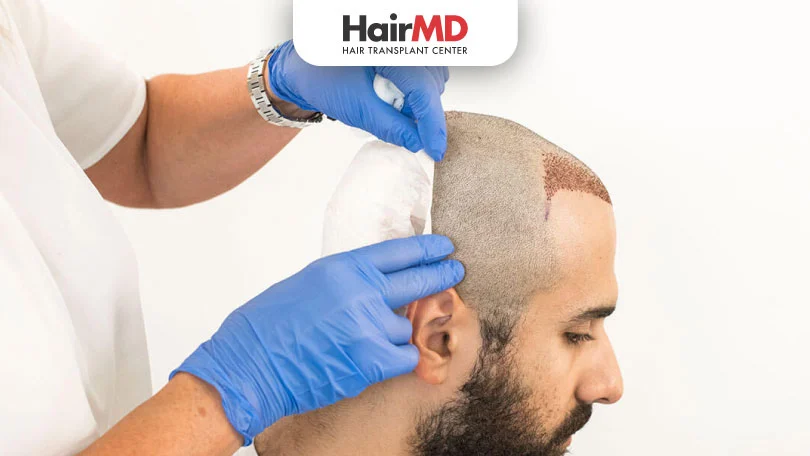15th Oct, 2024

What’s covered in the article?
- Understanding Hair Transplant
- What is a Hair Transplant?
- Latest Advancements in Hair Transplant Techniques
- Who are Suitable Candidates for Hair Transplant?
- Potential Risks and Side Effects
- Conclusion
Understanding Hair Transplant
Experiencing hair loss can be distressing, impacting both confidence and self-esteem. It’s a challenge that many individuals face, often leading them to seek various remedies to restore their hair and confidence.
Fortunately, advancements in medical science present solutions like hair transplants, which can provide a natural-looking head of hair. This procedure involves relocating hair follicles from a donor area, typically where hair is more abundant, to thinning or balding areas. However, not everyone is a suitable candidate for a hair transplant.
Factors such as age, hair type, the extent of hair loss, and medical history play crucial roles in determining eligibility. Let’s explore the intricacies of hair transplants, focusing on who qualifies as an ideal candidate, and essential considerations for those contemplating this transformative procedure. Understanding these elements can help potential candidates make informed decisions and achieve desirable outcomes.
What is a Hair Transplant?
A hair transplant is a surgical procedure aimed at addressing baldness or hair thinning by relocating hair follicles from a donor area, typically at the back or sides of the scalp where hair growth is more robust, to a bald or thinning area of the scalp. This technique strives to restore hair and offer a natural appearance, enhancing an individual’s overall look.
The procedure can involve different methods, such as Follicular Unit Transplantation (FUT) or Follicular Unit Extraction (FUE), each with its unique approach to harvesting and implanting hair follicles. Recovery time can vary, with some swelling or discomfort expected, but the results often lead to increased confidence and satisfaction for individuals seeking to improve their hair density and appearance.
Latest Advancements in Hair Transplant Techniques
- FUE (Follicular Unit Extraction): This minimally invasive technique involves extracting individual hair follicles and transplanting them to the bald area. It leaves minimal scarring and has a quicker recovery time compared to older methods.
- DHI (Direct Hair Implantation): A variation of FUE, DHI uses a specialized pen-like tool to implant hair directly into the scalp without prior recipient site creation, offering precision and a natural hairline.
- Robotic Hair Transplantation: Utilizes AI and robotics to assist in harvesting and implanting hair follicles with high precision, reducing human error and enhancing outcomes.
Who are Suitable Candidates for Hair Transplant?
- Age Considerations: Typically, candidates above the age of 25 are considered more suitable for hair transplants as hair loss patterns are more established, allowing for a predictable outcome. For younger individuals, it’s suggested to explore other treatments to manage and possibly delay further baldness.
- Degree of Baldness: Suitability depends on the extent of hair loss. Individuals with moderate to severe baldness (Grade II to Grade VI) are often appropriate candidates. It’s crucial to have a sufficient donor area, often the sides or back of the head, where hair growth is dense and healthy.
- Donor Area Quality: Success heavily relies on the quality and availability of the donor area. If the scalp donor area is limited, alternatives like beard or body hair can be used.
- Underlying Skin Conditions: It’s essential to rule out skin conditions like alopecia areata that might cause or worsen hair loss. Consulting with a dermatologist or hair transplant surgeon is crucial to identify such conditions. Skin diseases can impact effectiveness, making transplants unsuitable for some.
- Medical Fitness: Candidates must be medically fit for surgery, which includes undergoing blood tests and obtaining a physician’s clearance to ensure good health. Underlying health issues should be addressed before considering a transplant.
- Realistic Expectations: Realistic expectations are key to satisfaction. Understanding that the process is about restoration rather than perfection can help align expectations with results.
Potential Risks and Side Effects
Scarring and Infection: As with any surgery, there is a risk of scarring and infection, though these are rare with modern techniques.
Shock Loss: Temporary hair thinning post-surgery can occur due to shock to the scalp.
Uneven Growth: Initial hair growth may appear uneven, but this typically resolves over time.
Do You Know?
Nearly 250 Patients Visit HairMD
Everyday For Various Hair Concerns?
(Your journey to healthier and fuller hair starts here!)
Meet Our Dermatologists
Conclusion
Hair transplants offer a promising solution for those experiencing hair loss, but not everyone is a candidate. By understanding suitability criteria and working with experienced professionals, individuals can make informed decisions about their hair restoration journey. If you’re considering a hair transplant, ensure you’re equipped with accurate information and guidance to achieve optimal results.
Further Reading
Top Kitchen Ingredients to Boost Hair Growth
Discover the best kitchen ingredients for hair growth! Use coconut oil, onion juice, aloe vera & more to nourish your hair naturally and reduce hair fall.
How to Treat Alopecia Areata at Home: Natural Solutions for Hair Growth
Explore home remedies for alopecia areata to promote hair regrowth and boost confidence from home.
Redensyl vs. Minoxidil: Which is the Better For Hair Growth?
Discover the differences between Redensyl and Minoxidil for hair growth. Learn about their effectiveness, side effects, and which treatment might be better for you.
Biotin-Rich Foods for Natural Hair Growth
Know the best foods rich in biotin to help your hair to grow naturally stronger and healthier by experts from HairMD, Pune
Have thoughts? Please let us know
We are committed not only to treating you, but also educating you.











